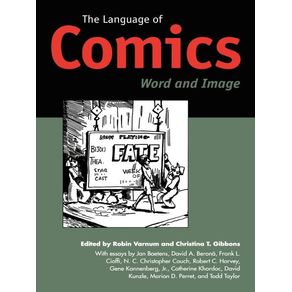With essays by Jan Baetens, David A. Beronä, Frank L. Cioffi, N. C. Christopher Couch, Robert C. Harvey, Gene Kannenberg, Jr. , Catherine Khordoc, David Kunzle, Marion D. Perret, and Todd Taylor
In our culture, which depends increasingly on images for instruction and recreation, it is important to ask how words and images make meaning when they are combined. Comics, one of the most widely read media of the twentieth century, serves as an ideal for focusing an investigation on the word-and-image question.
This collection of essays attempts to give an answer. The first six see words and images as separate art forms that play with or against each other. David Kunzle finds that words restrict the meaning of the art of Adolphe Willette and Theophile-Alexandre Steinlen in Le Chat Noir. David A. Beronä, examining wordless novels, argues that the ability to read pictures depends on the ability to read words. Todd Taylor draws on classical rhetoric to demonstrate that images in The Road Runner are more persuasive than words.
N. C. Christopher Couch—writing on The Yellow Kid—and Robert C. Harvey—discussing early New Yorker cartoons—are both interested in the historical development of the partnership between words and images in comics. Frank L. Cioffi traces a disjunctive relationship of opposites in the work of Andrzej Mleczko, Ben Katchor, R. Crumb, and Art Spiegelman.
The last four essays explore the integration of words and images. Among five comic book adaptations of Hamlet, Marion D. Perret finds one in which words and images form a dialectic. Jan Baetens critiques the semiotically inspired theory of Phillippe Marion. Catherine Khordoc explores speech balloons in Asterix the Gaul. Gene Kannenberg, Jr. , demonstrates how the Chicago-based artist Chris Ware blurs the difference between word and image.
The Language of Comics, however, is the first collection of critical essays on comics to explore a single issue as it affects a variety of comics.

